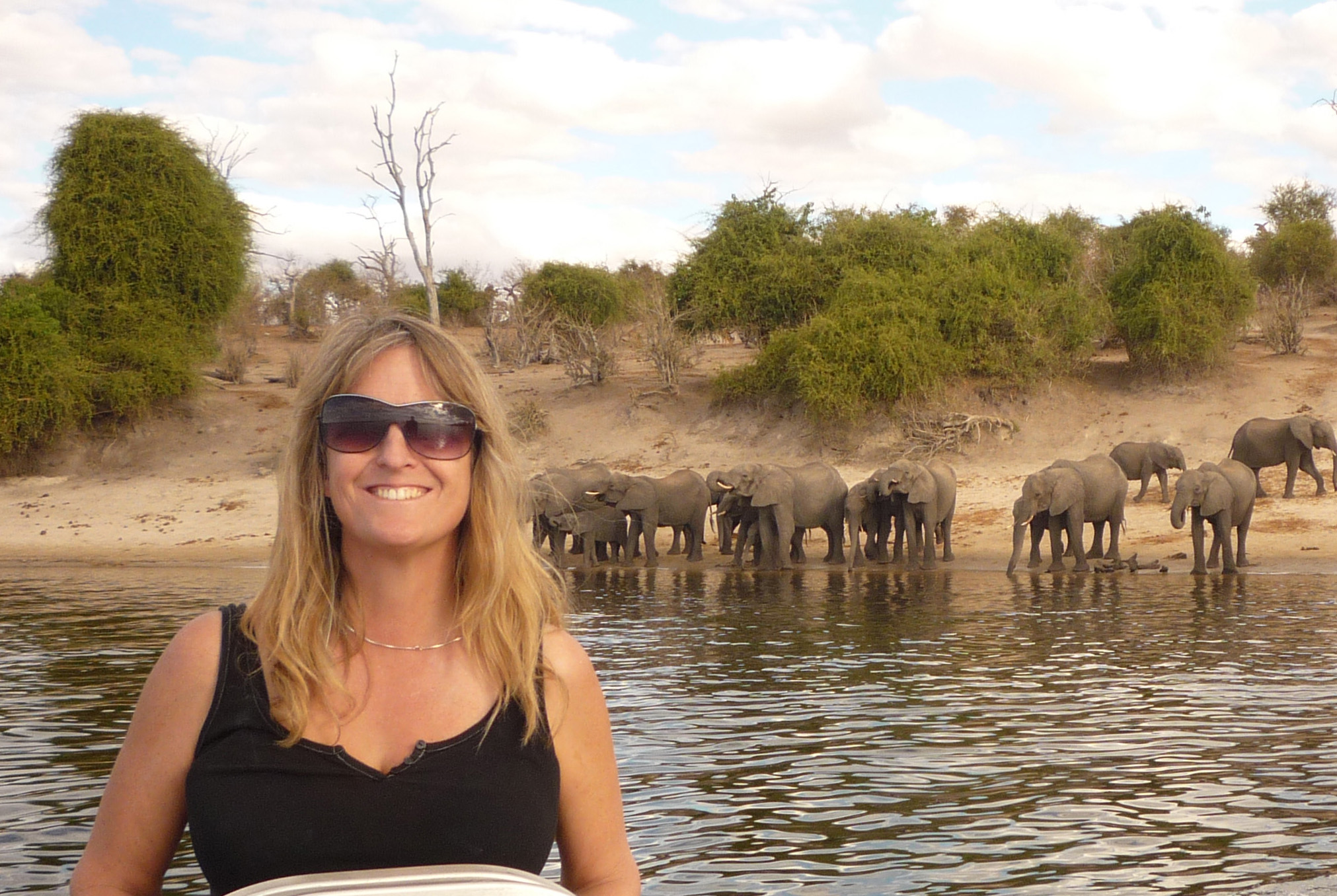Kathleen Alexander receives NSF grant to research human-animal linkage in water quality

Kathleen Alexander, associate professor of wildlife in Virginia Tech’s College of Natural Resources and Environment, has received a $250,000 National Science Foundation (NSF) grant to investigate the links between humans and animals as they influence water quality and, in turn, how water quality affects their health.
Alexander’s research will focus on the Chobe River region of northern Botswana, where she has lived for most of the last 20 years. She noticed that large numbers of residents regularly become sick with diarrhea two times during the year, and that these peaks appear to coincide with environmental changes in the region and with river flow.
“The river is the only source of water here in the dry season, so humans and animals cluster at its banks,” Alexander said. “Water provides a connection between human and animal communities. Changes in water quality can profoundly change the health of all that use this resource.”
“We are studying the dynamics of how the activities and health of both humans and animal populations in the area are coupled in the system through water, and how land use and climate changes can influence this linkage,” she continued.
A few years ago, Alexander, who is an affiliated faculty member with the Fralin Life Science Institute, found that northern Botswana’s banded mongooses were dying from a previously unidentified species of tuberculosis bacteria closely related to those that cause human tuberculosis. The reservoir for this pathogen is currently not known. Alexander’s research has increasingly concentrated on identifying environmental and human-related drivers of disease transmission at the human-animal interface.
In the National Science Foundation-funded study, Alexander will use Escherichia coli (commonly known as E. coli) to track the transmission of microbes through the river, wildlife, domestic animals, and humans. She leads a multidisciplinary team, which includes a microbiologist, a water engineer, a medical geographer, and an anthropologist, to develop predictive models that can be used to formulate an early warning framework for the government to use to protect humans, animals, and the ecosystem.
Her team includes Virginia Tech faculty members Monica Ponder, assistant professor of food science and technology, who is also affiliated with the Fralin Life Science Institute, and Leigh-Anne Krometis, assistant professor of biological systems engineering, both in the College of Agriculture and Life Sciences, as well as Jason Blackburn, assistant professor of geography at the University of Florida, and John Bock, professor of anthropology at California State University, Fullerton.
“We are changing our world rapidly with little understanding of the long-term consequences,” Alexander said. “We need to understand where and how these socio-ecological systems are coupled and how they influence water quality and environmental health.”
Water-restricted environments that experience extreme seasonal changes in water availability, such as the Chobe River region, are very vulnerable to pollution, especially as human development alters the landscape. The pollution of limited water resources is an urgent problem facing much of the world, particularly Africa, so management of these resources is crucial.
“When you are sitting in a hospital ward where there are numerous sick babies, watching hospital staff working hard to try to save these children, you know it is imperative that we understand what drives these water-borne disease outbreaks,” Alexander said. “It’s crucial that we understand and manage these coupling points where humans affect the system function, and the system affects the health of the human and animal populations.”
Conducting fieldwork and collecting water samples along the Chobe River presents challenges, from temperatures of 109 F to the presence of crocodiles, hippos, and elephants. “This kind of field work is not for the faint of heart,” she said.
The project includes a large educational component working with various age groups, from schoolchildren to adults living in the study area. A water curriculum for use in local environmental clubs has been developed, and Botswana youth participate in project activities to gain experience in research and develop an appreciation of the importance of water management on rural livelihoods.
Alexander shared some of her preliminary findings at the Centrum for Climate Change and Animal Health’s interdisciplinary workshop in St. Raphaël, France, on Oct. 5, 2011.
For more on Alexander’s health and water quality work in Botswana, visit the project’s blog and the Facebook page for the Centre for African Resources: Animals, Communities, and Land Use (CARACAL), a nonprofit organization she co-founded.




